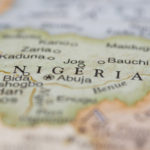
LONDON (BP)–Concerns about Chinese human rights abuses notwithstanding, Beijing edged one step closer May 15 to hosting the 2008 Olympic Games, when the International Olympics Committee approved its bid, along with those of Toronto and Paris, according to a CNSNews.com report.
The other two contenders to host sport’s most important event, Osaka in Japan and Istanbul, Turkey, were eased out of the running by concerns largely relating to finances.
At a meeting in Lausanne, Switzerland, the IOC’s executive board considered a report — essentially a “risk assessment” — evaluating the respective merits of the five cities.
The committee’s 123 members, from some 80 countries, will decide the matter in a secret ballot at a meeting in Moscow on July 13.
It will be the first time such a vote takes place without IOC members having visited the cities concerned. After a vote-buying scandal in the late 1990s surrounding the Salt Lake City bid for the 2002 Winter Olympics, the committee prohibited members from visiting the bidding cities.
Instead, an evaluation commission visited the cities to examine technical aspects of each bid, including the facilities being planned, accommodations, transportation, environmental issues, finances and public support. Political and human rights issues were not addressed.
The evaluation commission’s report thus carries added weight, as many of the IOC members voting in July will not have visited some of the cities for many years, if ever.
Leaks from the commission reported in a Hong Kong newspaper May 15 said that the body had given Paris and Toronto a better evaluation than Beijing, with Osaka and Istanbul trailing behind.
But the 107-page report itself gives no clear indication of having placed the three top cities in any pecking order. Its conclusion is that the bids of Beijing, Paris and Toronto are all “excellent,” with only “minor deficiencies” identified.
(A May 16 report in The New York Times, meanwhile, stated that Beijing “appeared to remain the front-runner” as the report was being released.)
In Beijing’s case, the report notes that “the process and pace of change taking place in China and Beijing and the possible challenges caused by population and economic growth in the period leading up to 2008,” but expresses confidence that the challenges can be met, CNSNews.com reported.
“It is the commission’s belief that a Beijing Games would leave a unique legacy to China and to sport and the commission is confident that Beijing would organize an excellent games,” the report said.
The report said the challenges facing the other two cities also can be overcome. Paris’ bid had some unresolved planning elements of the proposed Olympic Village, while Toronto faced the challenge of a private and public alliance to deliver waterfront sports venues and Olympic Village developments.
The report makes it clear the assessments were of a technical nature, and that the sticky issue of human rights was not taken into account.
But, it adds, “it is impossible to ignore the public debate on political issues such as human rights which, in the present context, is imposed on sport. The commission will not deal with this issue other than to acknowledge the existence of the debate and its continuation. Members of the IOC will have to reach their own conclusions [when they vote in July].”
Of the candidate cities, the Chinese capital has long been considered the front-runner, having lost the race to host the 2000 Games to Sydney by just two votes. It is also widely thought to have the backing of Juan Antonio Samaranch, who is stepping down in July as IOC president after 21 years.
But Beijing’s bid is also the most controversial. Some human rights activists have suggested that rights violations should be taken into account when the IOC makes its decision, pointing out among other things that foreign media representatives’ ability to move about freely is severely curtailed by the Chinese.
This issue clearly concerned the IOC commission that visited Beijing last February. The report said Chinese officials “confirmed to the commission that there will be no restrictions on media reporting and movement of journalists up to and including the Olympic Games.”
Some U.S. lawmakers have called for Beijing’s bid to fail. Pending resolutions in both houses of Congress say China should not allowed to host the Olympics unless it “releases all political prisoners, ratifies the International Covenant on Civil and Political Rights, and observes internationally recognized human rights.”
China has reacted angrily to what it sees as interference in IOC matters.
Some supporters of Beijing’s bid say hosting the Olympics could help encourage moves toward democratization in China. Even the Dalai Lama, the Tibetan Buddhist leader reviled by Beijing, recently said the Beijing should have the right to host the 2008 Games.
Media magnate Rupert Murdoch, whose News Corp. owns Fox News, was quoted May 15 as supporting Beijing. Murdoch’s Star TV entertainment channel broadcasts to parts of China.
The South China Morning Post quoted a spokesperson for the Beijing bid committee May 14 as playing down concerns about any U.S. threat to boycott the Olympic bid.
“The IOC has stated that sports should be separated from politics,” the spokesperson said. “The Foreign Ministry has made clear that diplomatic rows should be resolved through diplomatic channels.”
Meanwhile, Beijing’s People’s Daily reported that the president of China’s Olympic Committee, Yuan Weimin, had “declined to rule out the possibility” that Beijing could co-host the 2008 Games with Taiwan on the basis that the island is a province of China.
Yuan acknowledged that IOC rules only allowed a single city to host the Olympics, but said that if Beijing won, it could seek IOC approval to locate some events in Taiwan.
Taiwan’s disputed relationship with China is one of Asia’s most pressing security questions. The recent U.S. decision to sell new weapons to the democratic nation sparked fury on the communist mainland.
–30–
Goodenough is the London bureau chief for CNSNews.com. Used by permission.


















